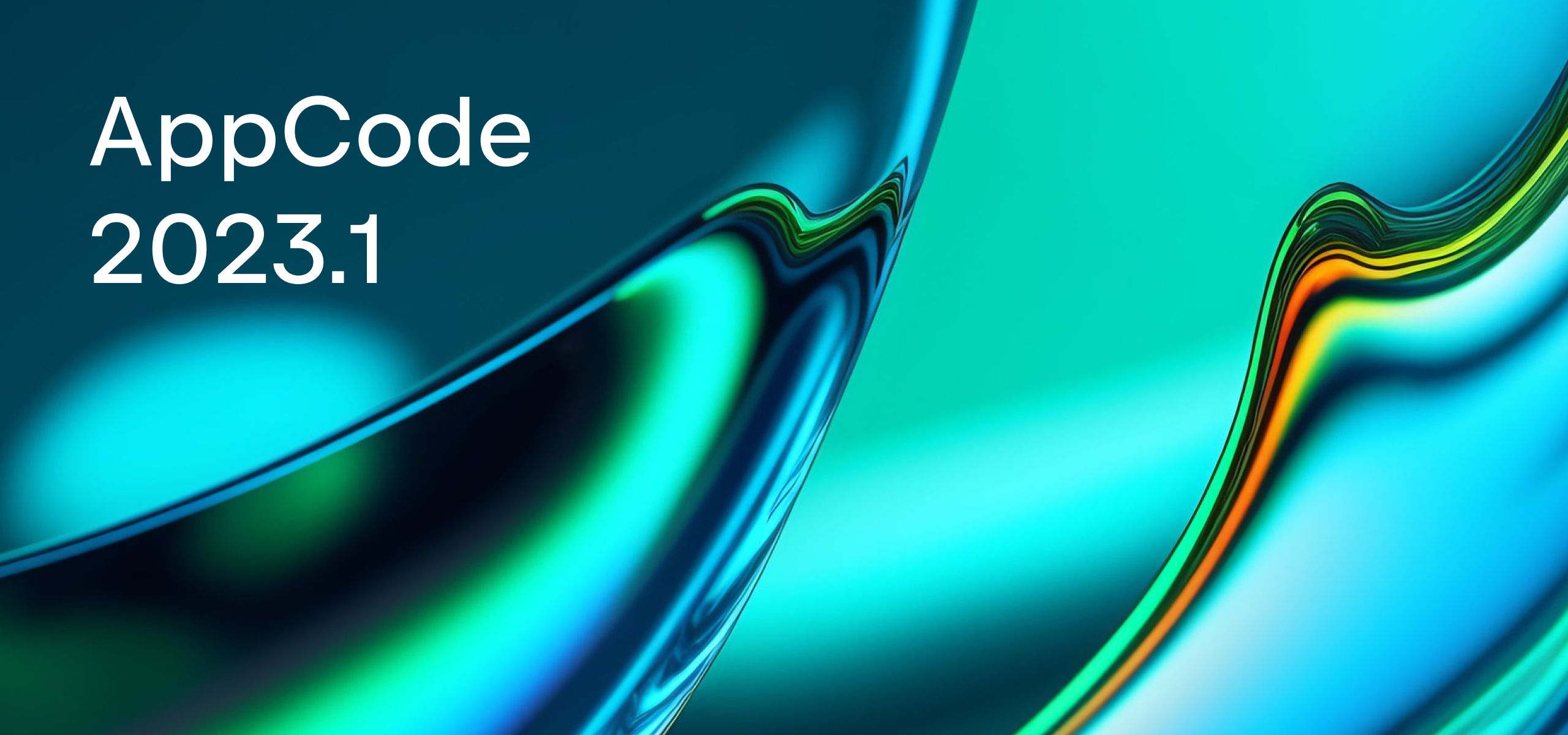AppCode Starts the 2022.2 EAP with the UML Class Diagrams
Hi everyone,
Today we are starting the Early Access Program for AppCode 2022.2, and the first build is already available for download.
Give the free EAP builds a try and let us know what you think about the changes! Share your feedback in the comments or submit it to our issue tracker.
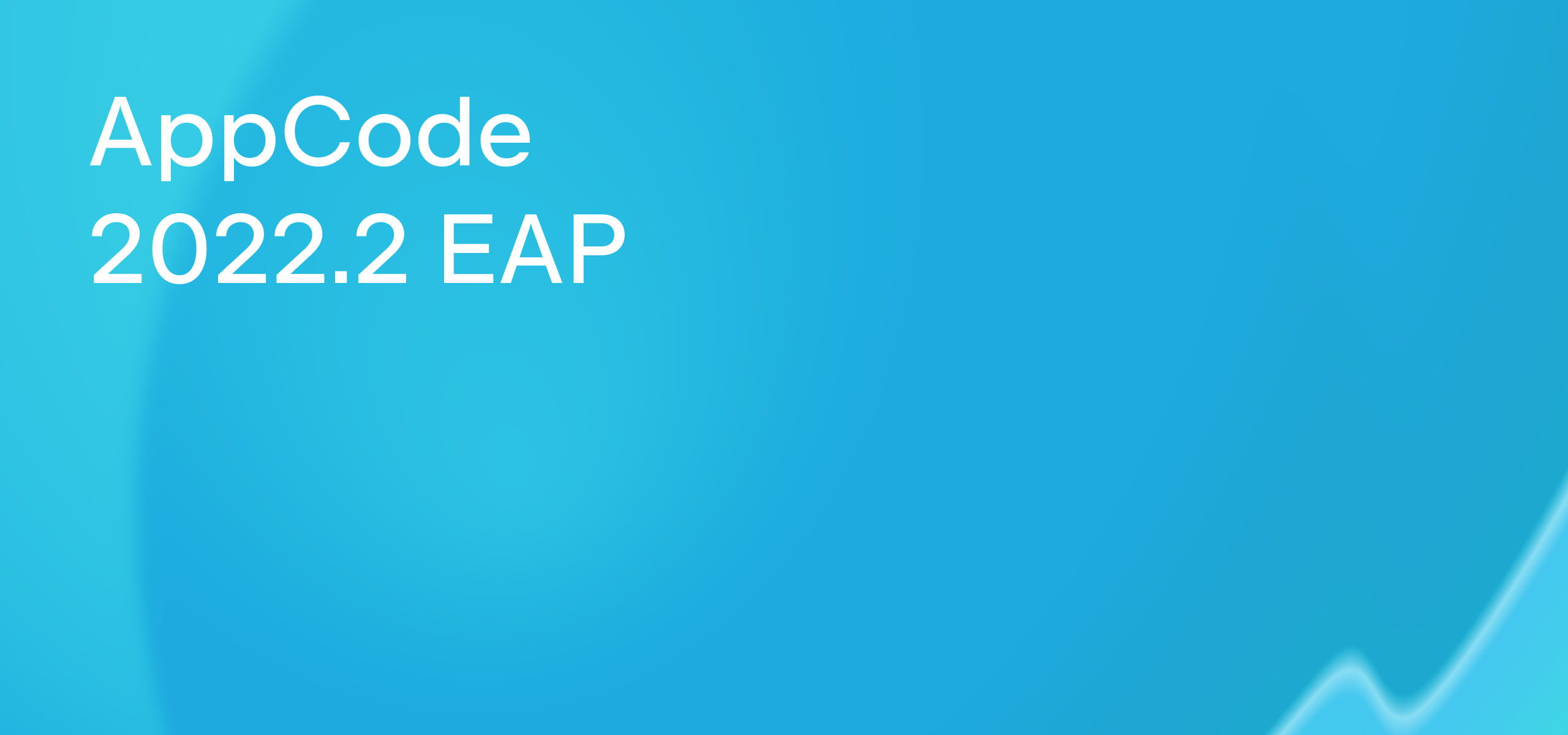
The main highlights:
- UML class diagrams are generated for Swift and Objective-C classes.
- Code generation for Swift actors is enhanced.
- Formatter for Swift code is improved.
- Kotlin Multiplatform Mobile plugin was updated to work with more types of KMM/Xcode projects.
UML class diagrams
AppCode can now generate and show you UML diagrams for the classes and methods in your application. The class diagrams are available for Swift and Objective-C classes.
To open them, you can do either of the following:
- Open the Project view and call Diagrams | Show Diagram… in the context menu.
- Use the context menu in the AppCode editor and call Diagrams | Show Diagram… from there.
The Show Diagram action (⌥⇧⌘U) opens the diagram in a new tab, while the Show Diagram Popup action (⌥⌘U) opens it in a new pop-up window.
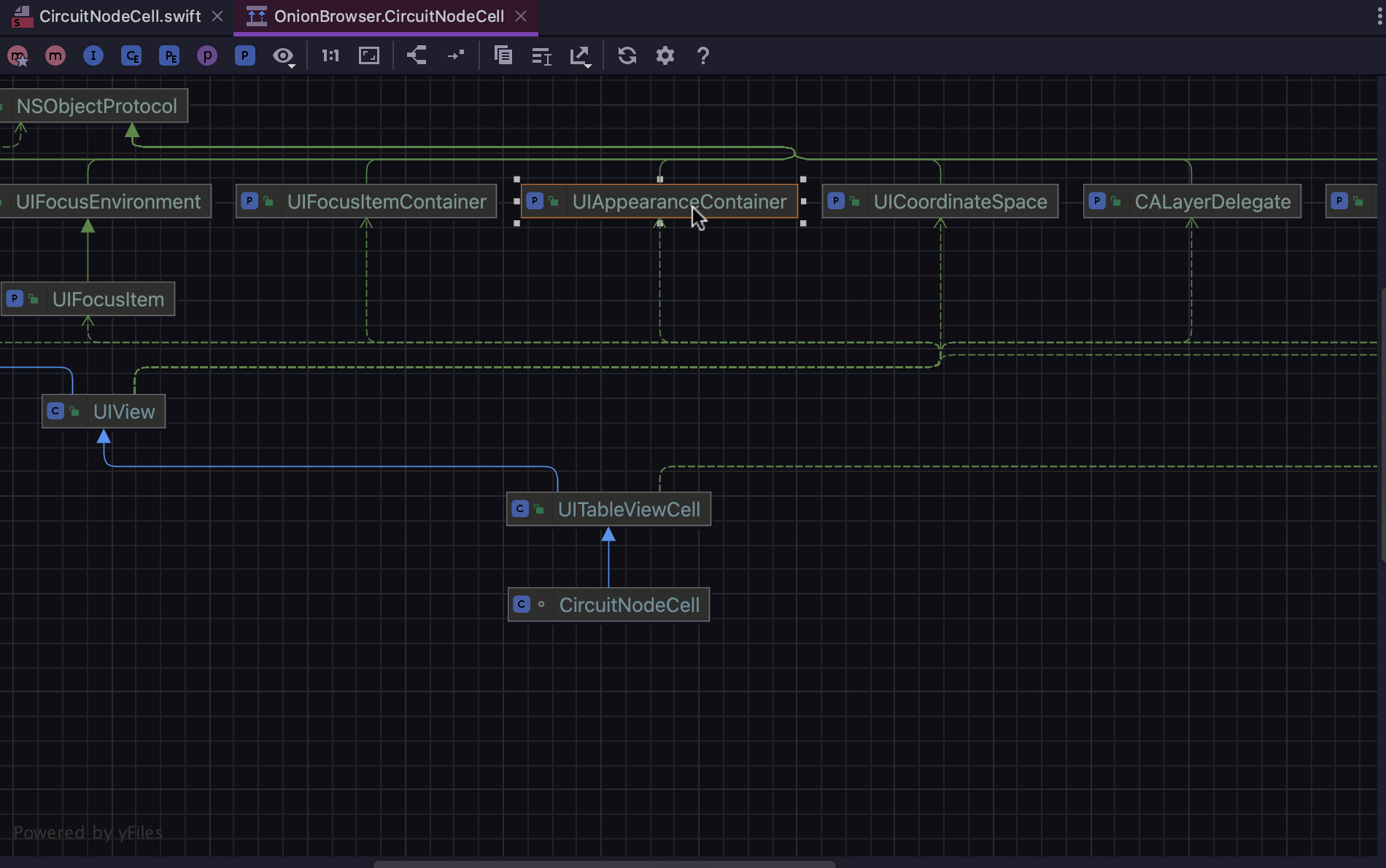
Filtering by visibility and showing categories (like Methods, Properties, Nested Types, etc.) are available in the diagram toolbar:
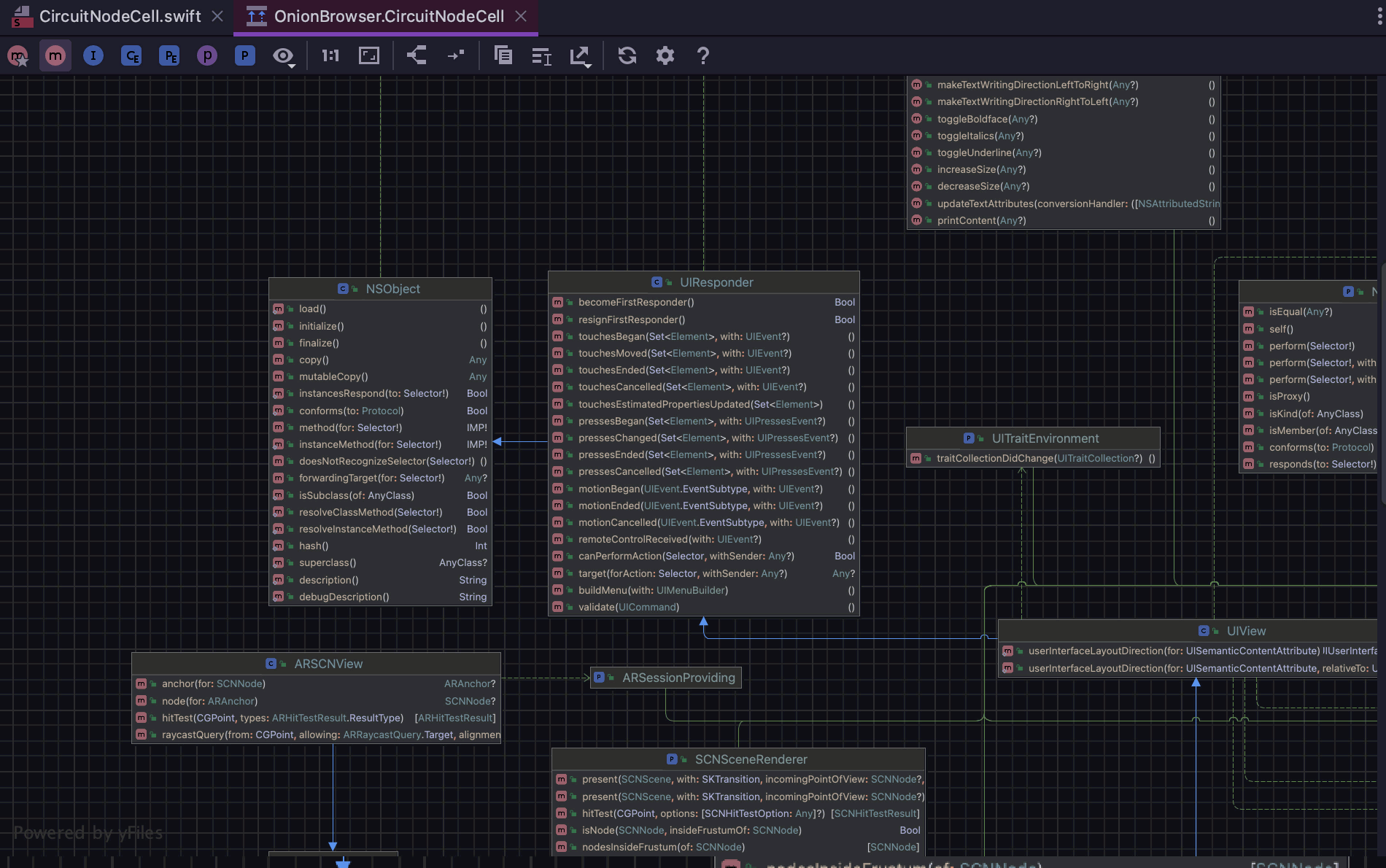
Use ⌘F12 to open the list of diagram elements and navigate between them:
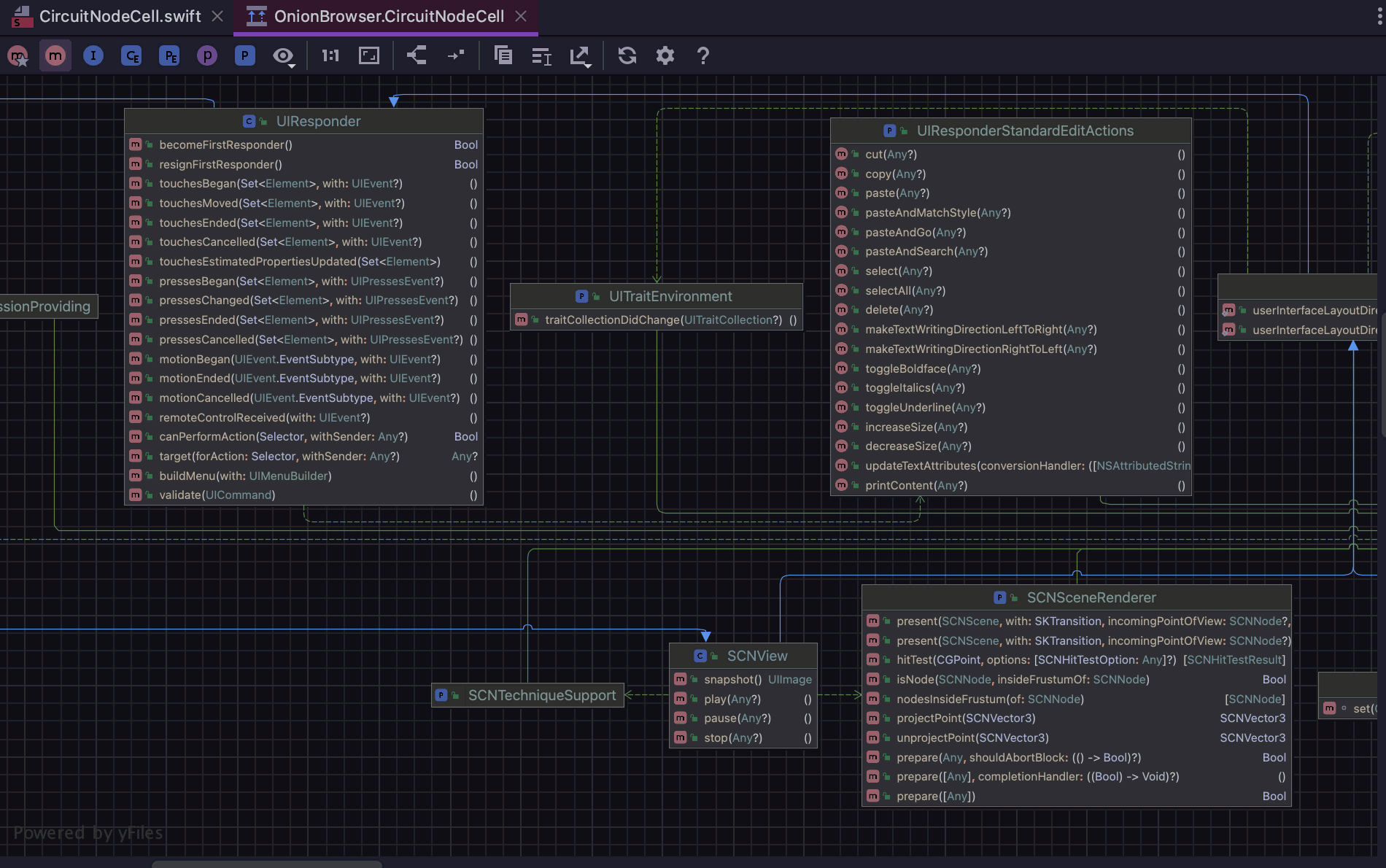
To view implementations, use ⌥⌘B.
We are still planning to make further improvements to the UML diagrams in AppCode. In the meantime, we’ll be happy to listen to your feedback in the comments here or in our issue tracker.
Code generation for Swift actors
AppCode 2022.2 can generate initializers for Swift actors now:
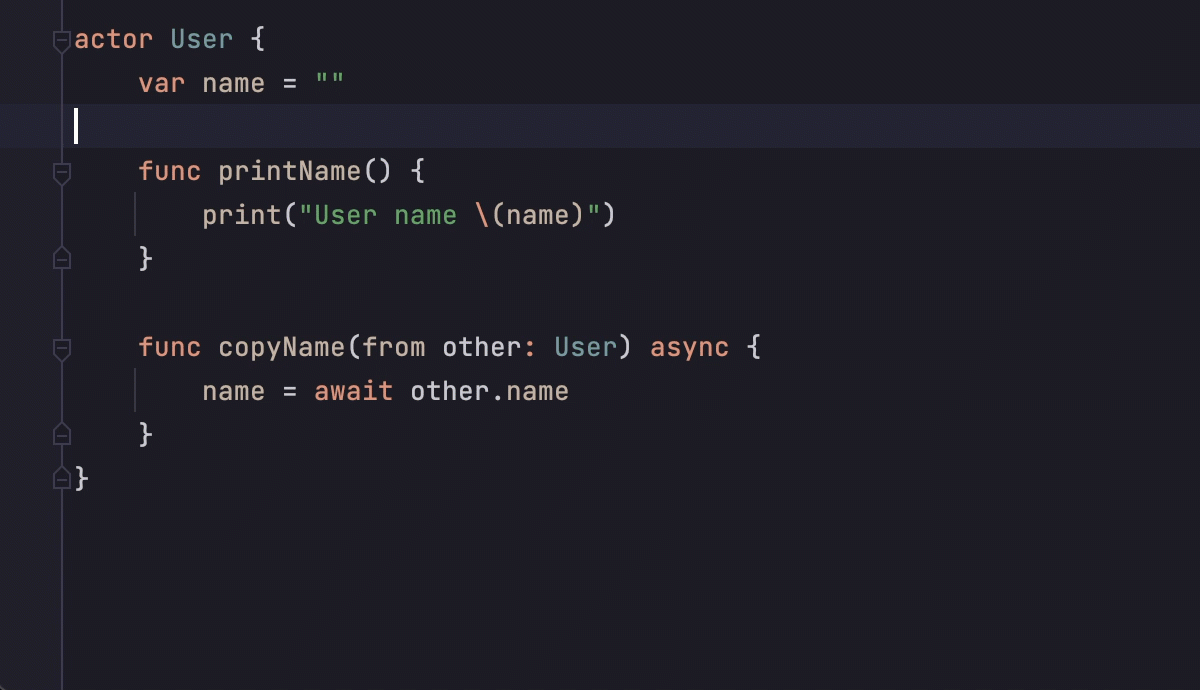
Actor-isolated properties are no longer suggested when auto-generating equals and hash in actor’s extension:
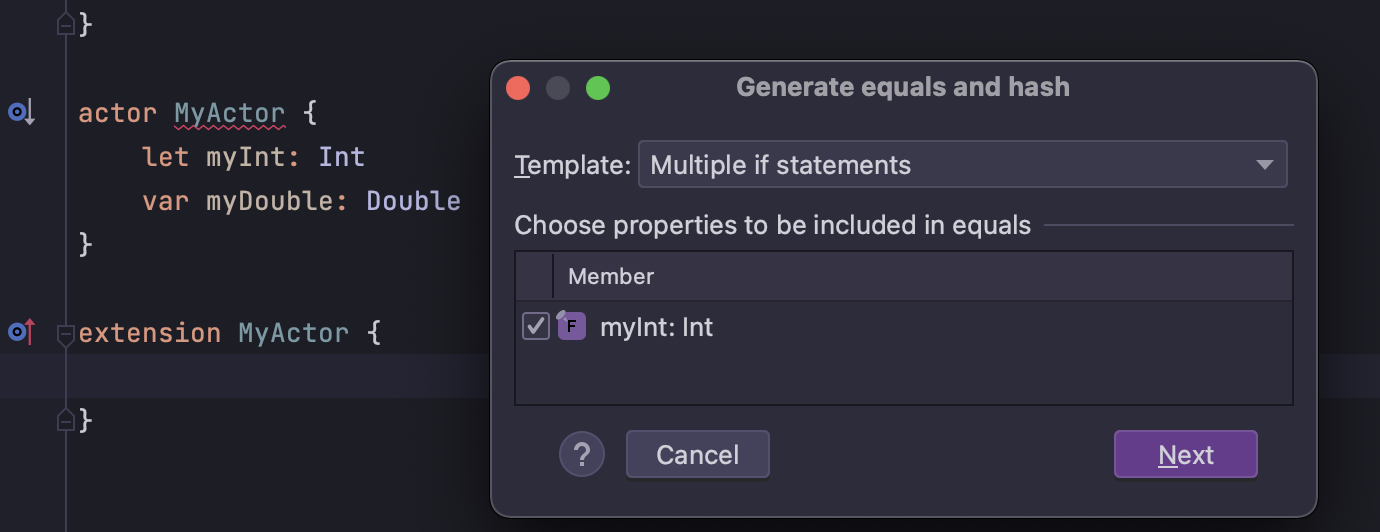
We also fixed the auto-generated description, debugDescription and hash for actor’s extension to include the nonisolated keyword.
Swift formatter improvements
The Swift formatter removes the redundant spaces between async and throws, get and async, and in some other cases (OC-22717, OC-22693). It also now respects the comments position when altering braces location (OC-15079).
Easier KMM framework attachment to Xcode
The Kotlin Multiplatform Mobile plugin for AppCode got an update. Previously, AppCode only worked with CocoaPods KMM projects. In this version, projects with the KMM framework attached via the :<kmm_library_name>:embedAndSignAppleFrameworkForXcode Gradle task are also supported.
Either approach will make the cross-resolve from Swift to Kotlin available for the linked KMM libraries. Unified project view for such projects correctly displays both Gradle and Xcode projects in one common tree.
Other enhancements
- On the first AppCode launch, if Xcode isn’t installed, or when the version of Xcode selected in AppCode is removed from the machine, AppCode now suggests manually selecting Xcode. The new Select Xcode manually action helps with that (OC-22775).
- We improved the functionality of joining into one line (OC-22610, OC-18909).
- We fixed the Swift documentation comments generation (OC-22256).
The full release notes are available here.
Your AppCode team
JetBrains
The Drive to Develop

